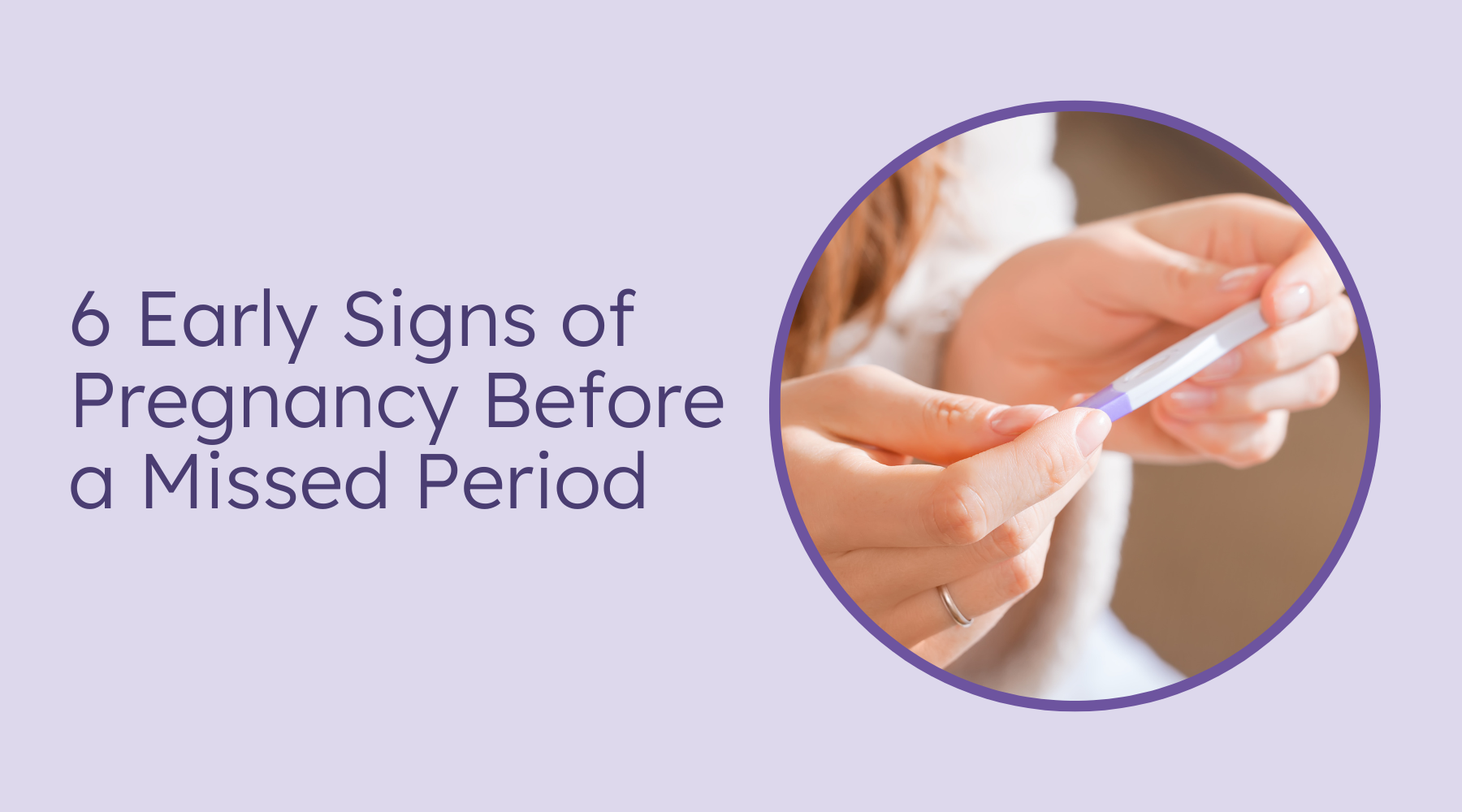If you’re trying to conceive, then you know the frustration of the notorious “two week wait” — those two weeks between ovulation and taking a pregnancy test! You may have confirmed ovulation with our Proov strips that test for rising PdG (a marker of progesterone) after ovulation, or LH strips that show the rise of the hormone LH, that signals the approach of ovulation.
If you had intercourse on these days, then it’s possible you’re pregnant! All that stands in the way of knowing is the two week wait.
It may be too early to get a positive pregnancy test, but that doesn’t mean you can’t start being on the lookout for early signs of pregnancy. We’re here for you! We’ve included six early signs of pregnancy you can look for, before a missed period!

1. Nausea and vomiting
It’s very common to experience nausea and vomiting in early pregnancy. In fact, as many as 80% of women experience nausea in their first trimester! (Although that nausea doesn’t always turn into vomiting, thankfully.) Due to being so common, the term “morning sickness” developed to describe the nauseous feeling many experience upon waking while pregnant. Sorry, though, it’s not limited to the morning hours!
Although you may think of morning sickness not beginning until later in pregnancy, studies show that women can begin experiencing nausea within 11 to 20 days of ovulation! So, if you notice you’re feeling queasy unexpectedly during your two week wait, it could be an early sign of pregnancy.
2. Sensitivity to smells and food aversions
One of the main sources of the newfound nausea is an increased sensitivity to smells in early pregnancy. Research hasn’t found a consistent reason for why this is, but it’s hypothesized that it may be an evolutionary reaction to help our ancestors avoid toxins while pregnant.
Despite the fact that we have other ways to detect safe foods now, the nose may be the first signal that you’re pregnant. If you notice an increased sensitivity to foods like meat, fish, or eggs, or environmental smells like smoking, fumes, or garbage, it could be that your nose has something important to tell you!
3. Mood Swings
There are many causes for mood swings, including premenstrual syndrome (which can occur before your period), physical stressors, metabolic changes, fatigue, etc. But if your mood changes are related to pregnancy, it’s the rapidly changing hormones that are the culprit. If you’re tearing up at that laundry detergent commercial, or unaccountably angry at the slow elevator, it may be the changing hormones of early pregnancy.
But there are other, more drastic mood changes that may occur in pregnancy, especially for those who have a history or family history of anxiety and/or depression. There’s good news, though! There is support available throughout your pregnancy to reduce these symptoms and help you feel your best. Also good news: studies show that treated mood instability, depression, and anxiety in mothers had no negative outcomes for babies.
Talk with your doctor about what support may be best for you during your pregnancy.
4. Fatigue
Pregnancy, even as early as implantation, can cause the body to go into power-save mode as it puts all its available energy toward the development of the placenta and baby. If you notice you’re falling asleep on the couch in the evenings, it may be a sign that your body is up to something: pregnancy!
This can be one of the first possible signs of pregnancy, as the effort involved in your body begins as soon as implantation occurs in the lining of the uterus. The placenta begins rapidly developing and causes estrogen, progesterone, and HCG to be produced in great supply!

5. Breast Changes
It’s possible to have breast tenderness leading up to the start of your period, but if breasts are changing because of pregnancy, there may be specific signs to watch out for.
As soon as implantation occurs, your body begins producing the pregnancy hormone known as hCG. This is the same hormone that a pregnancy test reads to give you a positive pregnancy test.
This hormone also causes the breasts to begin a critical transformation during the first weeks of pregnancy to allow them to eventually lactate. This means that not only could the breasts be tender, but they could feel larger or fuller, as well. Some women also notice a darkening of the areola (the area around the nipples).
6. Frequent Urination
Urination certainly increases as the baby grows and puts more pressure on the bladder that sits below the uterus. But did you know frequent urination can begin even earlier? Not due to the weight of the uterus, but an increased production of blood!
As HCG increases, it signals the body to produce more blood to aid the pregnancy. The kidneys filter this increased supply and remove the extra waste, which is released as urine.
If you have a history of overactive bladder syndrome, you may notice those symptoms worsen throughout pregnancy, but especially during the first trimester.
It can be difficult to wait to find out if you’re pregnant, and testing too early can give you a false negative (a pregnancy test that is negative because the hCG hormone is not yet high enough to register). The good news is that Proov Check early pregnancy tests can be used up to 5 days before your next expected period!













